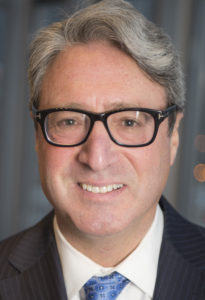This presentation looks at the cost of collecting the income tax. The IRS overhead itself represents the direct cost to the government in generating this revenue. Beside that there is the burden put on the tax payer in preparing his return, in the case of an audit there may be the cost of representation before a tax court. You also become aware of the vast amount of human resources wasted on this activity for the revenue generated.
This session introduces Progress & Poverty, including an overview of what we cover in the course. Even if you don’t plan to take the full course, you can expect this introductory session to help you gain a new and useful perspective on today’s problems of wealth concentration, poverty, and lack of opportunity.
America in the 1870s faced increasing poverty, rising unemployment, rule by an elite and their corporations– many of the same problems we’re experiencing today. Henry George described the cause of these problems and proposed a remedy which is even more applicable today than it was in his time. His book Progress & Poverty, perhaps the best-selling nonfiction book of the 19th century, presented his analysis and solution.
In this “classic” version of the course, students are encouraged to read the original 1879 text, and/or modern summaries and supplements, and to evaluate what George says against their own experience and understanding. You’ll gain a new understanding of how the economy works, which public policies promote liberty and prosperity, and which don’t.
Class meets every Tuesday, beginning 6:15PM on January 19, ending March 22. More information about the course is here and here. Pre-registration is helpful but not required.

As farmland yields to “higher-value” uses, how (and how well and how inexpensively) will we eat? Bob Jene reviews data from a leading agricultural preservation organization, the American Farmland Trust (AFT). Among other things they buy development rights from landowners to insure continued farming use, and attempt to facilitate community supported agriculture which makes family farms more viable. A Georgist fiscal reform encourages more conservative and productive use of all land and reduces sprawl, thus preventing encroachment on farmland. An alliance with AFT would benefit us both.
Adam Schuster will present “Diagnosing Illinois’ Fiscal Sickness and Prescribing a Cure” to the Henry George School. He is working on a 5-year fiscal plan to save the state and pay off its debt.
Adam is budget and tax research director at Illinois Policy Institute. Prior to joining the Institute, he worked in the Illinois Department of Labor to reduce unnecessary regulatory burdens and on an initiative to tie state spending to measurable outcomes.
Registration is required for this event. Those attending will be required to pick up a badge from building security to come upstairs. Please tell us you’re coming by sending email to info@hgchicago.org or calling 312 362-9302.

Decades before Wealth of Nations, Adam Smith wrote what he seems to have considered a superior work, Theory of Moral Sentiments. He wrote:
How selfish soever man may be supposed, there are evidently some principles in his nature, which interest him in the fortune of others, and render their happiness necessary to him, though he derives nothing from it except the pleasure of seeing it.
Wikipedia asserts:
Smith critically examines the moral thinking of his time, and suggests that conscience arises from dynamic and interactive social relationships through which people seek “mutual sympathy of sentiments.”[74] His goal in writing the work was to explain the source of mankind’s ability to form moral judgement, given that people begin life with no moral sentiments at all. Smith proposes a theory of sympathy, in which the act of observing others and seeing the judgements they form of both others and oneself makes people aware of themselves and how others perceive their behaviour.
The Theory of Moral Sentiments has been printed in numerous editions, and is also available free on line. Smith revised the book throughout his lifetime; it’s best to avoid the first edition, and choose one published after his death in 1790.
In this session we’ll discuss parts 1-3 of the book, taking up parts 4-7 on November 20,


